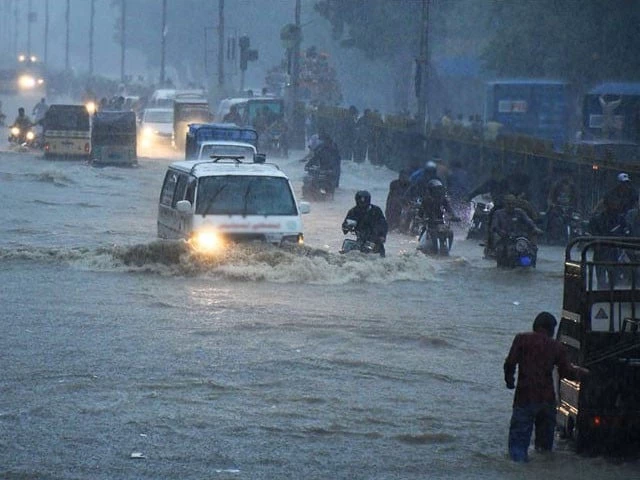LAHORE – Deadly floods across Pakistan have killed hundreds since mid-August, leaving communities devastated and sparking renewed calls for climate adaptation instead of reliance on aid.
Pakistan, despite contributing less than 1% of global greenhouse gas emissions, ranks among the world’s 10 most climate-vulnerable nations. Experts say the country now faces climate shocks as routine seasonal events, not exceptional disasters.
“Floods are no longer rare. They are the new normal,” said ecologist Rafi-ul-Haq, noting that the intensity of rainfall, flash floods, and glacial melting is worsening each year.
Since late June, monsoon-triggered floods and landslides have killed nearly 800 people nationwide, with Khyber Pakhtunkhwa the worst-hit. Entire families have been swept away by mudslides and swollen rivers.
The Gilgit-Baltistan region, home to vast glaciers, has seen record-breaking temperatures and shrinking winters. In Chilas, the mercury soared to 49°C earlier this year. Meanwhile, cyclone threats are growing as rising sea temperatures in the Arabian Sea alter storm paths toward Pakistan’s coast.
Experts stress that human-driven problems – such as deforestation, poor land-use planning, and weak drainage systems – account for much of the devastation. “Floods will happen, but disasters don’t have to,” Haq said.
Flood management specialist Ahmed Kamal urged investments in watershed management, green infrastructure, resilient housing, and early warning systems. Low-cost measures, such as clearing drains before monsoon season and building community shelters, could save lives immediately, he added.
Prime Minister Shehbaz Sharif has admitted past failures, saying successive governments allowed construction on riverbeds and floodplains. He pledged stricter enforcement to remove illegal encroachments.
Climate expert Imran Saqib Khalid warned that inaction could bring food insecurity, water shortages, and mass migration in coming decades. He called on Pakistan to work with other low-emission nations to secure fairer international climate finance.
“Pakistan’s priority must be adaptation and resilience,” Khalid said. “Global warming is here to stay, but how much we suffer depends on how fast we act.”




